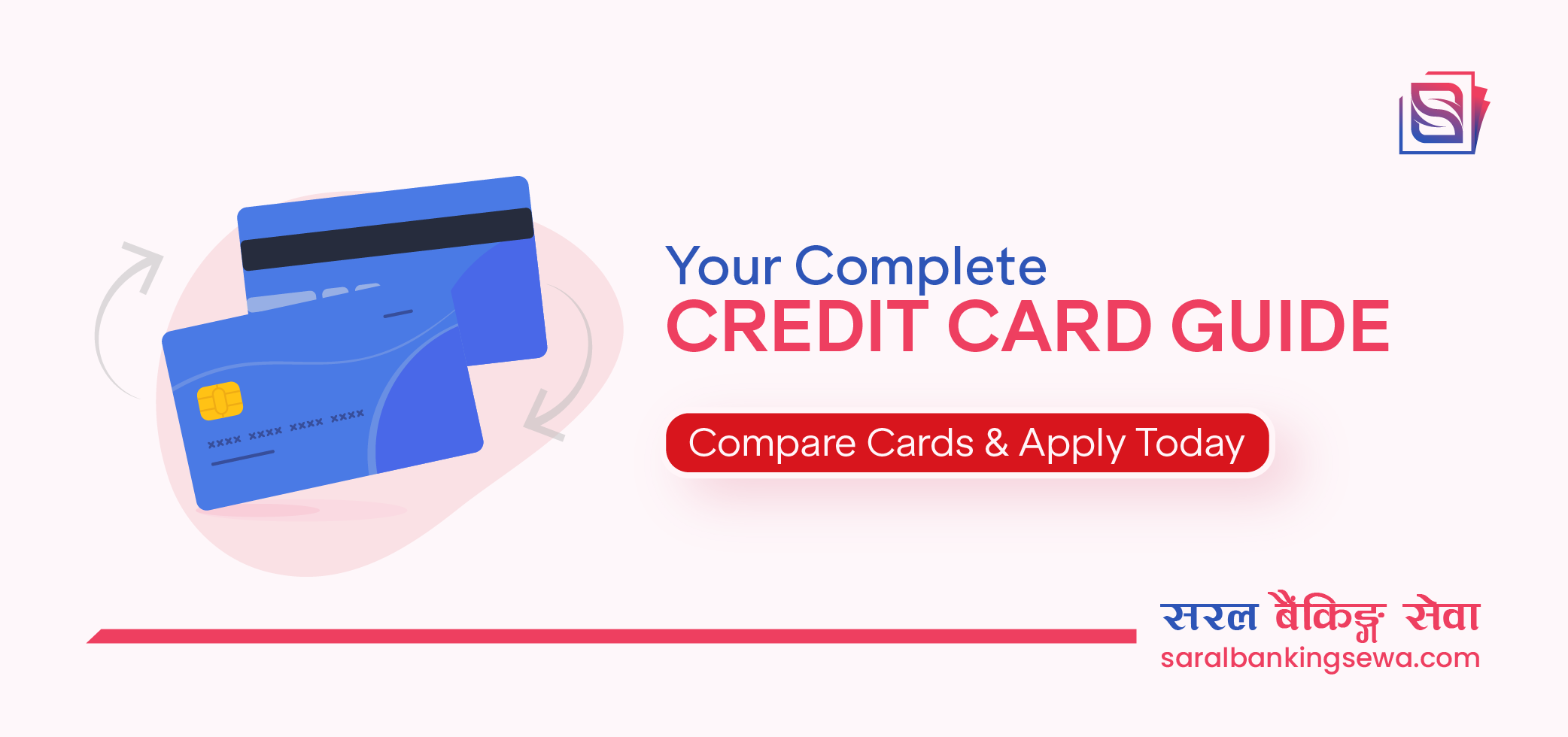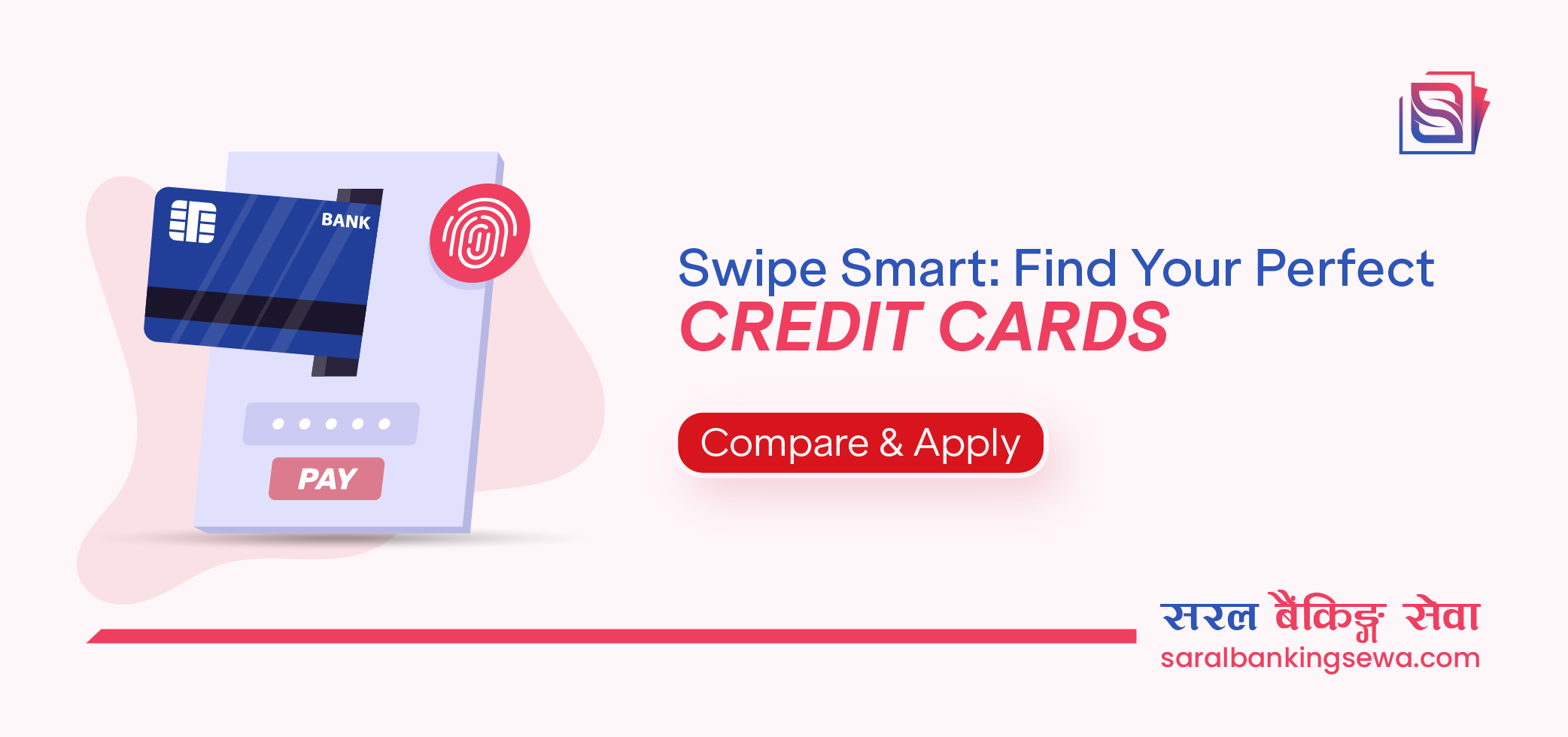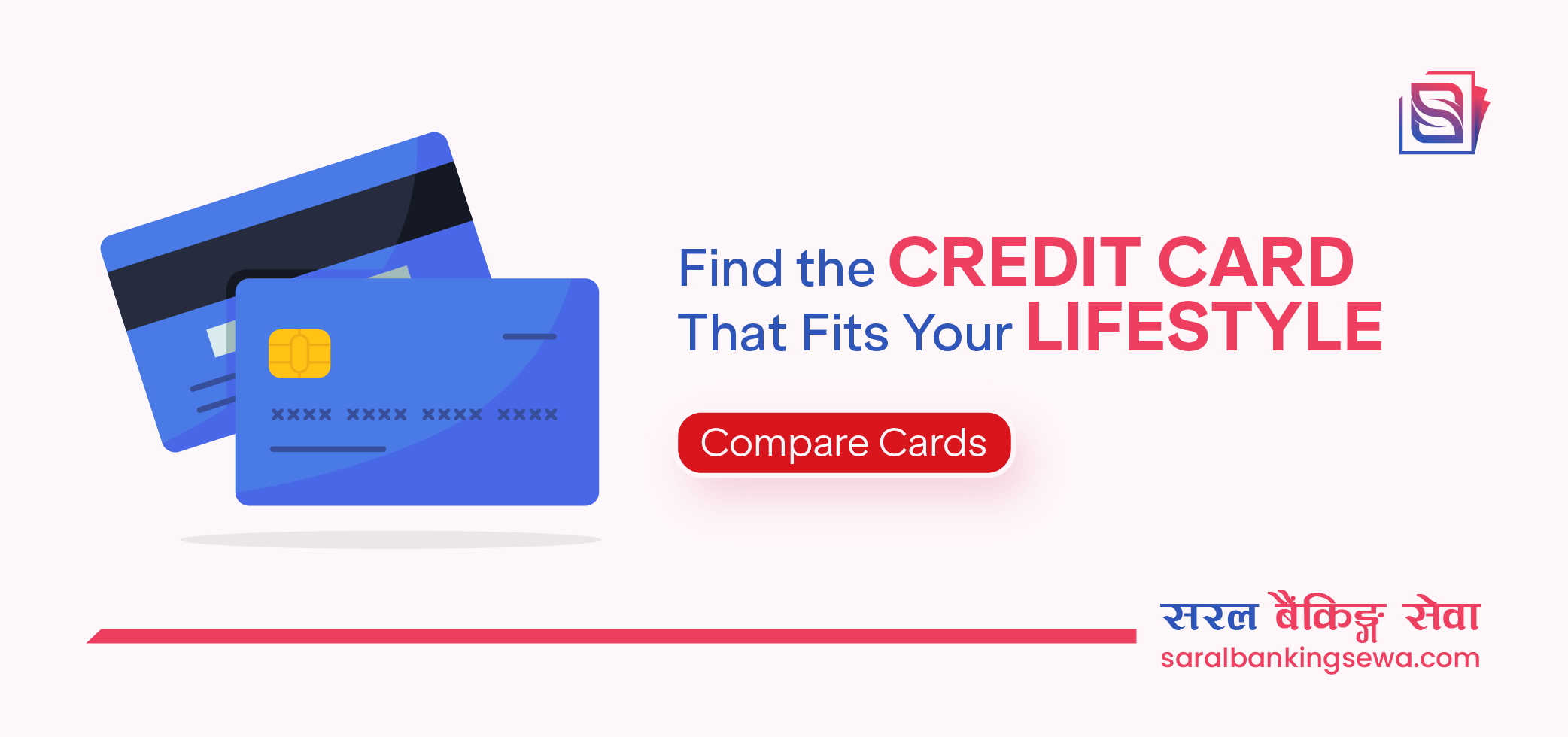
Have you found yourself in a tricky spot, seeing the latest flagship phones coming out in the market, but your bank balance is looking a little shy? Or maybe you’ve heard about the 0% interest EMI offers to buy expensive gadgets using credit cards?
If you’ve been thinking of a credit card for a long time but haven’t gotten one yourself, you're not alone. Credit cards in Nepal are becoming a popular financial tool, but with so many options and rules, it can feel like trying to solve a maze.
But don't worry, we're here to help. At Saral Banking Sewa (SBS), we simplify the difficult process and provide easy-to-understand information so that you can make smart financial decisions every single time.
And the good news is, this is your complete guide to understanding credit cards in Nepal, from the basics to small details, so you can confidently choose the best credit cards available for your needs.
Before we dive deep, let's clear up some common confusion that most people in Nepal tend to have: what’s the difference between a credit card and a debit card?
You can think of it this way: a debit card is like a key to your own wallet, while a credit card is like a key to a temporary loan from the bank.
Nepali banks offer a variety of types of credit cards in Nepal to suit different lifestyles and spending habits. The most common types are:
Apart from the convenience of not carrying cash 24/7, a credit card offers several compelling benefits in Nepal:
So, who can get a credit card? In Nepal, there is still a misconception that a credit card is only for wealthy people with very high income sources. However, it is entirely false as anyone with a stable income source can apply for a credit card in Nepal.
Additionally, the credit card eligibility and requirements are generally straightforward, but they can vary from bank to bank.
Here is the list of documents that are usually standard across most banks in Nepal to apply for a credit card:
Are you unsure whether you are eligible for a credit card? Find that out instantly using our Credit Card Eligibility Checker.
Applying for a credit card is a simple process. Here’s a step-by-step guide:
Pro Tip: If you apply for a credit card from Saral Banking Sewa, our team will guide you with documentation and help you get the card as soon as possible. So, start your credit card application with us, right now.
Using a credit card comes with responsibilities, and part of that is understanding the costs. Here are the common credit card fees and charges Nepal readers should be aware of:
Almost all commercial banks in Nepal now offer best credit cards, but some are more popular and have a wider range of products. Some of the major banks offering best credit cards in Nepal include:
Each bank offers different features and benefits. It’s essential to compare them to find the perfect match for your financial profile.
Don’t worry! You don’t have to visit each bank to compare its interest rates. Use Saral Banking Sewa’s credit card comparison tool that brings all banks to one place.
A credit card is a powerful financial tool that can provide flexibility and convenience when used wisely. It's not free money, but rather a short-term loan that needs to be paid back. The key to successful credit card use is simple: pay your bills on time and in full every month.
Ready to find the perfect credit card for you?
Don't get lost in the fine print. Visit Saral Banking Sewa to compare all the options side-by-side and get the transparent, unbiased information you need to make a confident decision. Your financial journey starts with a single, smart choice.
1.How much is the credit card limit in Nepal?
In Nepal, the credit card limit usually ranges from NPR 20,000 to 100,000 for standard cards, NPR 500,000 to 1,000,000 for premium cards, and can go up to NPR 1,500,000 for high-limit or collateral-secured cards. Cash withdrawals are generally allowed up to 10% of the credit limit, and the exact limit depends on your income, banking history, and the bank’s policy.
The minimum salary for a credit card in Nepal varies depending on the bank and the type of card you are applying for. However, based on general bank policies, a monthly salary of around NPR 15,000 to NPR 25,000 is often the minimum requirement for a standard credit card.
Yes, you can withdraw money from a credit card in Nepal, but it's important to be aware that this is a "cash advance" and comes with specific conditions and higher costs compared to using your card for purchases.
To make a credit card in Nepal, first check your eligibility: you must be a Nepali citizen, aged 18 or above, with a stable income and a bank account. Choose the credit card that suits your needs, gather required documents (ID, photos, proof of income), and submit your application online or at a bank branch. Once approved, you’ll receive your card and PIN, which you can activate and start using responsibly.
A debit card lets you spend money directly from your bank account. When you make a purchase, the amount is deducted from your available balance instantly. A credit card, on the other hand, allows you to borrow money from the bank up to a set limit. You then repay the borrowed amount later, either in full or through monthly installments (often with interest if not paid in full).




Sign up to discover Saral Banking Sewa